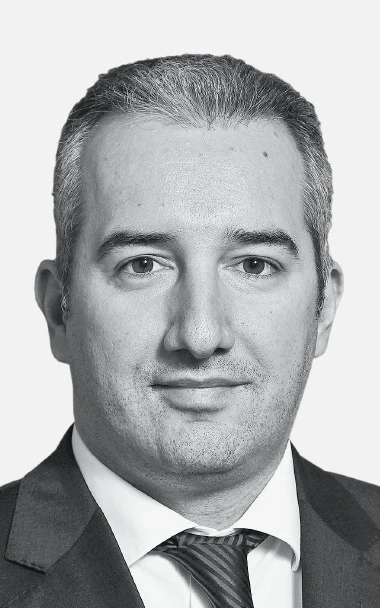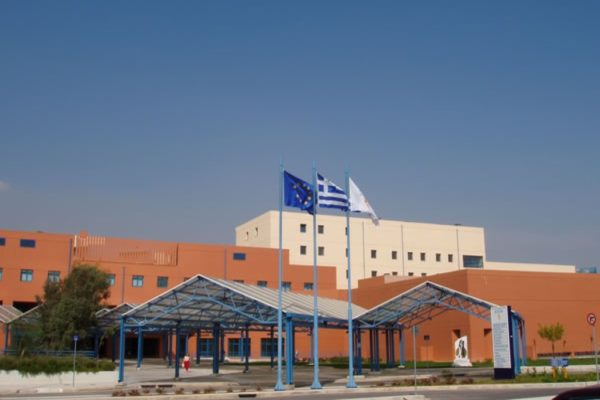Prof. Dimitrios Filippiadis | IASIOS Committee
Attikon University General Hospital | IASIOS Accredited Centre
 Professor Dimitrios Filippiadis is a distinguished figure in diagnostic and interventional radiology at the National and Kapodistrian University of Athens, Greece. His expertise centres around musculoskeletal (MSK) interventions and diagnostics, interventional oncology, and cancer pain management.
Professor Dimitrios Filippiadis is a distinguished figure in diagnostic and interventional radiology at the National and Kapodistrian University of Athens, Greece. His expertise centres around musculoskeletal (MSK) interventions and diagnostics, interventional oncology, and cancer pain management.
His commitment to IR education is exemplified by his recent appointment as the Chair of the Cardiovascular and Interventional Radiological Society of Europe (CIRSE) Online Education Committee.
Beyond his academic pursuits, Prof. Filippiadis is actively engaged in research, with notable contributions in areas such as discomanometry and the adoption of ablation procedures in Greece.
His dedication to advancing the field of interventional radiology is evident in his numerous accolades and professional affiliations, including his role as a committee member of IASIOS.
A testament to Prof. Filippiadis’s leadership and excellence is the recent achievement of the first IASIOS accreditation in Greece at the University General Hospital Attikon, a milestone that highlights his commitment to elevating standards in patient care.
Get to know Prof. Filippiadis a little bit better!
What are your hobbies and interests outside of medicine?
Before the start and during my studies in Medicine, I was working as a disc jockey (DJ); what’s left of these days and nights are thousands of vinyl records and CDs of all kinds of music, which I love listening to in my free time. Apart from listening to music, I love reading books, especially historical novels (Bernard Cornwell, Wilbur Smith, and Ken Follett are my Favorite authors). My other hobbies include playing basketball and swimming, especially on my beloved island of Lefkada, where we have a beach house.
Could you share an experience from your working/educational background that significantly impacted your journey?
I will always remember a particular morning nearly 15 years ago when an opportunity of a lifetime unfolded before me. I received an offer to join the 2nd Department of Radiology in Athens, where I was tasked with taking over and expanding the ablation section, a proposition that resonated deeply with my aspirations.
It was a moment of serendipity. At that time, I had just rejected an offer, as it required a vascular Interventional Radiologist, whereas I was seeking a broader role. In that pivotal moment, the universe seemed to align in my Favor. I could not believe my fortune, being offered a post to do what I wanted the most. It was one of these times that the universe conspired to help me achieve what I wanted.
Why did you choose a career in Interventional Oncology over other specialities?
During the onset of my residency in Diagnostic Radiology, I found myself with uncertainties, questioning whether I belonged behind a computer monitor, dictating reports. However, in the midst of these doubts, a fellow resident approached me with a proposition that would alter the course of my clinical trajectory.
They suggested enrolling in a post-graduate course on Interventional Radiology organized by Prof. Dimitrios Kelekis in Greece. From the very first introductory sessions, I felt a resonance with this speciality, instantly knowing that this is what I wanted to follow in my clinical career.
Several years later, a pivotal moment occurred during my visit to Strasbourg, courtesy of a CIRSE grant. Spending time there alongside Prof. Gangi and Dr. Buy, I realized that Interventional Oncology would be a 24/7 practice for me.
What was your motivation behind seeking IASIOS accreditation?
The 2nd Department of Radiology is dedicated to delivering exceptional Interventional Oncology services, catering to the largest number of patients in the country. Pursuing IASIOS accreditation was aimed at establishing unparalleled standards for patient care and encouraging good practice for Interventional Oncology services.
Furthermore, as physicians, we wanted to become members of a global community that offers benefits such as professional development, networking, recognition, and marketing and promotion.
What benefits does the IASIOS accreditation provide to the patients and the IOs?
Now that we have successfully obtained the IASIOS accreditation, the benefits for both our patients and practice performance have become evident. The entire process of patient care and treatment has undergone improvements. Throughout the accreditation process, we analysed our service line and refined its coordination and monitoring, and the outcome speaks for itself. An elevated standard of care in Interventional Oncology with the patient receiving the best possible treatment aims for the optimal individual clinical outcome.
Could you name some of the improvements IASIOS has brought into your IO service line?
Firstly, we discovered a wealth of resources and tools within our department that had previously gone unnoticed. These invaluable assets proved instrumental in enhancing the organization of our daily Interventional Oncology clinical service. With better organization, we were able to streamline our operations, resulting in a notable increase in the number of patients receiving treatment and an overall boost in productivity.
Moreover, the positive impact of this improvement extended horizontally across the department, influencing not only IO but also all other Interventional Radiology services.
How do you see the future and development of IO and the role it plays within cancer care?
The statistics and forecasts surrounding cancer care paint a clear picture: there will be a substantial increase in the number of patients opting for Interventional Oncology therapies in the coming years. This surge can be attributed to several factors, including the minimally invasive nature of IO techniques and their associated low morbidity and mortality rates, rendering them an attractive alternative or even first-line therapies for a wide majority of patients.
One key advantage of IO therapies lies in their Combination of IO techniques with systemic therapies, which clearly boosts cancer killing as well as allows the continuation of systemic treatments by overcoming the few sub-clones that have developed resistance. To sustain the solid foundation of IO and pave the way for further growth and development, it is imperative that we prioritize clinical services and patient care.
What advice do you have for the next generation of IOs
My advice for the next generation of Interventional Oncologists (IOs) is rooted in embracing CIRSE’s vision, which prioritizes clinical services and patient care. It is crucial for aspiring IOs to seek out mentors who can guide them through challenges, provide invaluable support and ensure a cohesive pathway toward success. Additionally, I urge them not to overlook the importance of research, as it serves as the foundation upon which innovation and advancement in the field are built. These three pillars will be the water-making the millwork!

